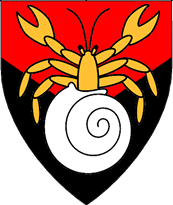By Heinrich von Holstein (Atlantia, 2025) Description This recipe is from a late 14th century Italian manuscript known as Anonimo Meridionale. The meaning of the word “levenexe” is unclear [1], but the passage describes a very typical medieval meat pie which mixes sweet and savory ingredients with fine spices. Instead of a traditional pie, I… Continue reading Torta Levenexe (Chicken Pie)
Blog
Torta de Cerase (Cherry Torte)
By Heinrich von Holstein (Atlantia, 2025) Description This is a late 15th century Italian cherry pie from a manuscript Cuoco napolitano, though it’s almost more like a proto-cheesecake. The instruction to use fresh cheese and old cheese is very interesting to me for a dessert. I chose to use some scamorza, a kind of aged… Continue reading Torta de Cerase (Cherry Torte)
Pizza
By Lord Heinrich von Holstein Presented at Atlantia Kingdom Arts & Science Festival, March 2025 Royal Baker Competition Description Pizza goes back over a thousand years though not as we know it today. For starters, it did not have tomato sauce as the tomato is a New World food that was widely available in Europe. … Continue reading Pizza
Roman BBQ Sauce
By Lord Heinrich von Holstein The Roman cookbook De Re Coquinaria , attributed to the legendary gourmand Marcus Gavius Apicius, describes a vibrant cuisine full of bold and contrasting flavors. After redacting and cooking several recipes from the book, I decided to make a composite “barbecue” sauce that incorporates some of Apicius’s favorite flavors. [223]… Continue reading Roman BBQ Sauce
Bruette Saake
Description “Bruette” meaning an un-thickened pottage and “Saake” referring to a wine-based sauce, this is the recipe that first got me interested in medieval cooking. It is an aromatic chicken soup of fresh herbs and iconic medieval European spices, tempered with wine and sweetened by chopped dates. This is my redaction after several iterations and… Continue reading Bruette Saake
Gingerbread
By Heinrich von Holstein Gyngerbrede. Take a quart of hony & sethe it, & skeme it clene; take Safroun, pouder Pepir, & þrow þer-on; take gratyd Brede, & make it so chargeaunt þat it wol be y-lechyd; þen take pouder Canelle, & straw þer-on y-now; þen make yt square, lyke as þou wolt leche yt;… Continue reading Gingerbread
Kaldes Crawt (Cold Cabbage)
By Heinrich von Holstein Item kaldes crawt | Decoque alba copita* (!) olerum et recipe ii partes Sinapis et unam partem mellis et mi sce liquorem cum vino carui et anisi et impone olera et da frigido modo (?). Eodem modo fit de piessen nisi quod ibi decoquuntur herbe et radices et erit idem ut… Continue reading Kaldes Crawt (Cold Cabbage)
A Flight of Mustards
By Heinrich von Holstein Displayed at Atlantia KASF, 3/2/24 Introduction Mustard is an ancient spice with written history going back millenia and usage in food likely much much longer. Mustard as a condiment in Europe can be traced back to ancient Roman texts, several of which contain recipes for ground mustard seeds mixed with wine,… Continue reading A Flight of Mustards
12th Night Feast – German Course
Atlantian 12th Night 2024By Heinrich von Holstein Course Menu King’s Hens (küneges hüenre) A Condiment (Ein condimentlin) A Carrot Puree (Ein morchen mus) A Sauce (Ein salse) with toast For this feast I was tasked with creating a course entirely from Ein Buch von Guter Spise. I looked for good “main” protein dishes in the… Continue reading 12th Night Feast – German Course
Roman Cuisine Class Handout
Cave Garum: An Introduction to Roman Cuisine By Lord Heinrich von Holstein CLASS HANDOUT Period Sources Naturalis Historia (~77 AD) – Gaius Plinius Secundus “Pliny the Elder” (~23-79 AD) Martial’s Epigrams – Marcus Valerius Martialis “Martial” (~38-~102 AD) The Satyricon (1st century AD) – Gaius Petronius Arbiter (27-66 AD) Di Agri Cultura (2nd century BCE)… Continue reading Roman Cuisine Class Handout
